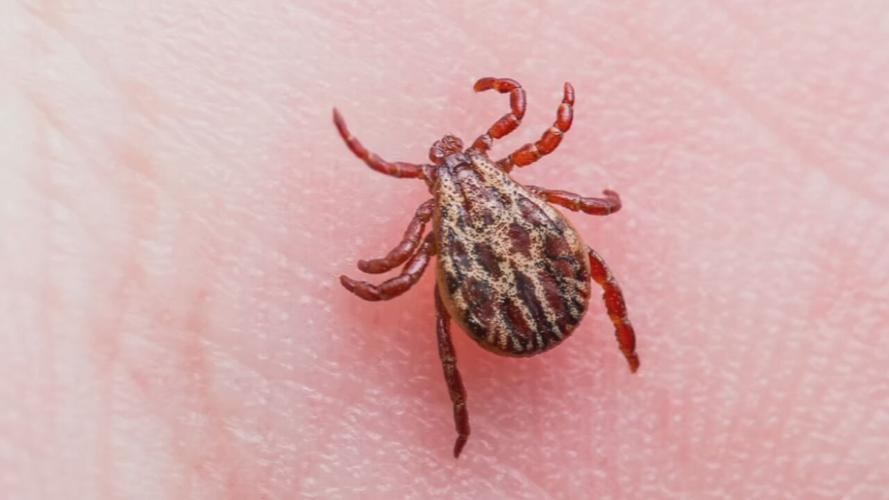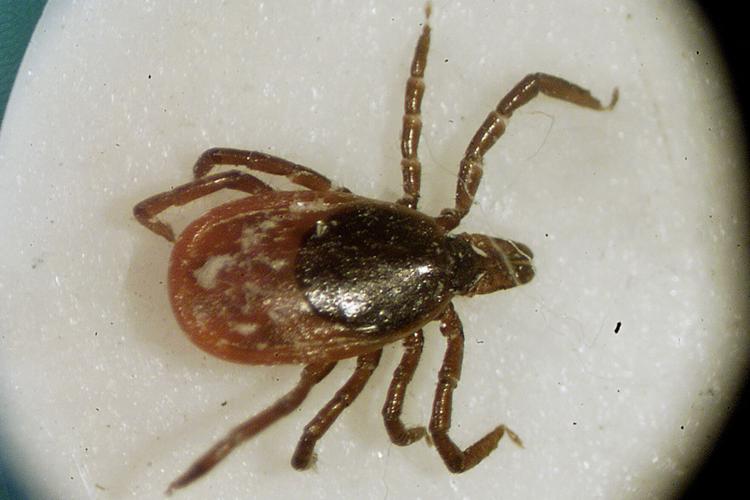LOUISVILLE, Ky. (WDRB) -- Ticks can pose a lot of problems, including some unexpected and rare health diseases. Experts believe there will be an increase in tick-borne diseases in Kentuckiana in the coming years.
"In this area in Kentucky, we have a number of ticks. Mostly, we had the Lone Star tick, we had the dog tick, and deer ticks," Dr. Dan Blatt, an infections disease expert with Norton Children's Hospital, said. "They transmit things like Rocky Mountain Spotted Fever. There's also a little bit more Lyme disease transmission than we had in the past."
With these ticks come a lot of diseases, and some bites can even lead to new allergies.
"There are a lot of tick-borne diseases, and a number of which are existing in Kentucky," Blatt said. "Alpha-gal allergy is one such reaction you can get from a tick bite."
That leads to people being allergic to red meat. Blatt said the Alpha-gal protein is found in certain meats like beef or pork and is an immune reaction, not an infection.
"Your body may think that that alpha protein is a pathogen or something that needs to fight," he said. "So then when you go and eat beef or pork, you can have an allergic reaction."
Blatt said the allergy may get better or worse over time, but that it's "very specific" to each person.
The rare allergy comes from the Lone Star tick, which is found in states like Indiana and Kentucky.
"When ticks bite a person, what happens is saliva from the tick will enter the host, the person that they're biting, and sometimes there's proteins and tick saliva, specifically from the Lone Star tick, that will get into the person's skin."
But there are ways to avoid getting bit.
"The best way to prevent a tick bite, for really anyone exposed to ticks, is to wear long pants, wear long socks, prevent the tick from biting you with a barrier," Blatt said.
If you find a tick on yourself, a pet or a loved one, experts say to make sure your remove it entirely.
"If you can, pull the tick off using tweezers, right at the base of the skin and pull straight up," said Blatt. "That way, you can remove the tick, remove any infection they may cause, then you could take that, put it in a plastic bag to just try to identify the tick later on."
While the red meat allergy is currently rare, Blatt said Americans will see more issues arise from ticks in the coming years.
"The climate is changing and the area where ticks can thrive is growing and it's moving, and so we're going to see more and more tick-borne diseases in the coming years," he said.
While Lone Star ticks do cause red meat allergies, experts said they don't cause allergies of fish or chicken.
"The primary reason for more and more tick bites is that ticks live in a bigger area than they used to, and that is due to evolving in the changing climate," said Blatt. "As the temperature of a geographic area increases, that allows for more and more ticks to thrive and for them to feed for a longer period throughout."
For more tips on how to protect yourself from tick bites, click here for guidance from the Centers for Disease Control and Prevention.
For more information about types of ticks and the diseases they can cause, click here.
Copyright 2023 WDRB Media. All Rights Reserved.





















